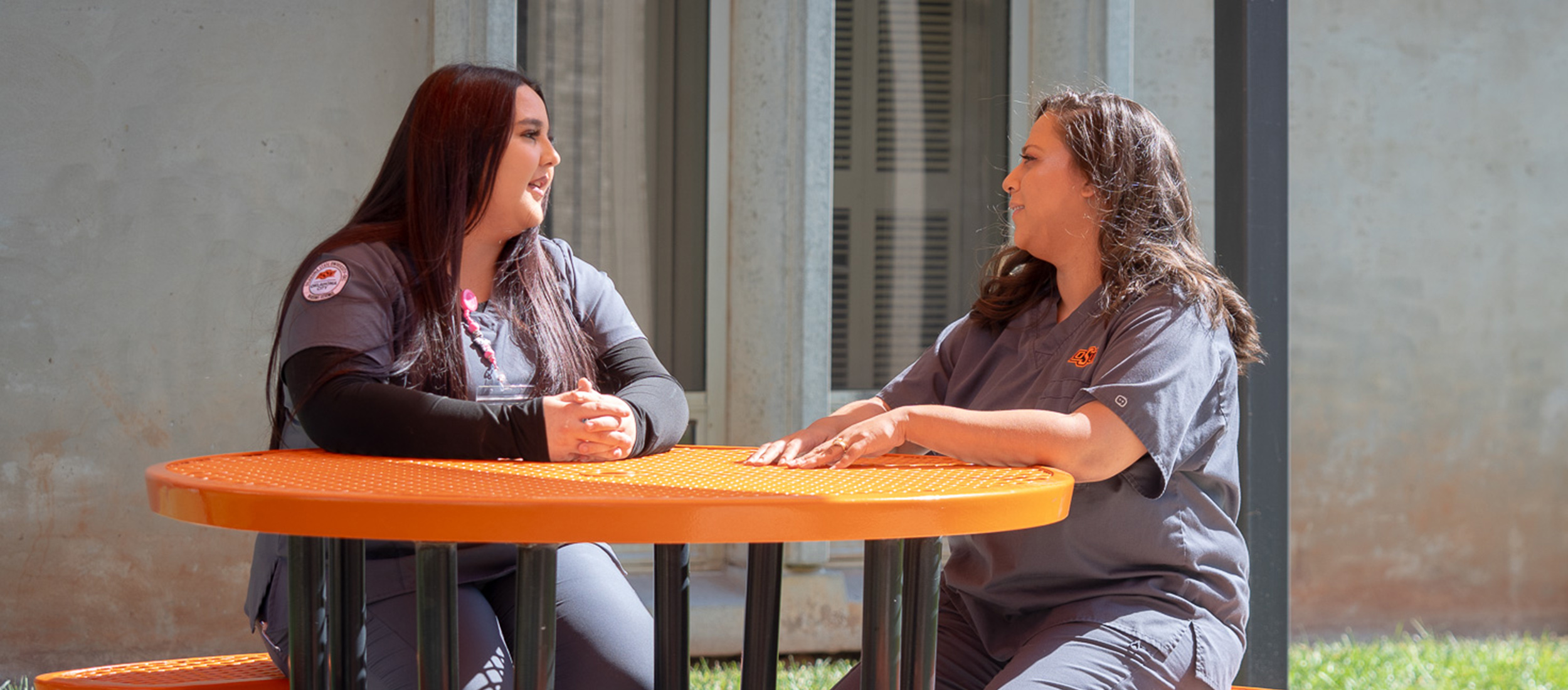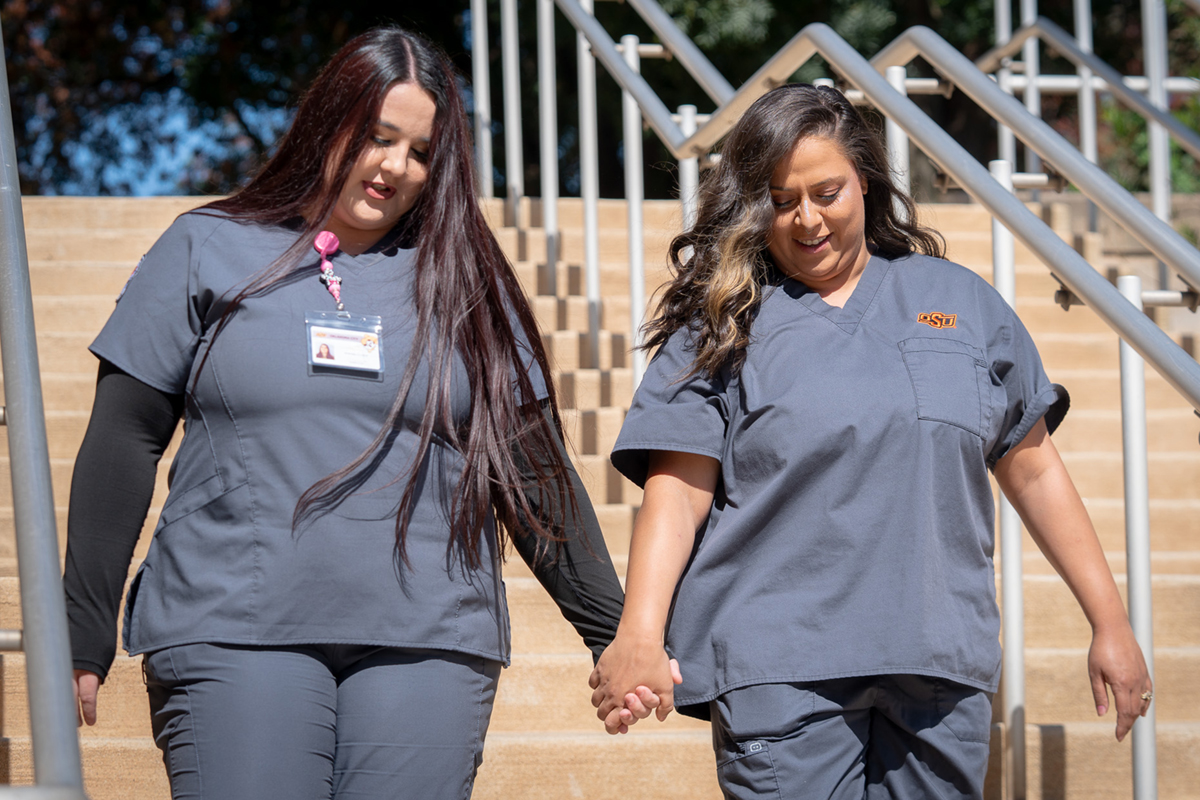
OSU-OKC nursing students save man’s life at Oklahoma State Fair
Tuesday, October 21, 2025
Media Contact: Matthew Price | Communications Manager | 405-945-6733 | matthew.l.price@okstate.edu
Two Oklahoma State University-Oklahoma City nursing students are being praised for their quick thinking and life-saving actions after they responded to a medical emergency at the Oklahoma State Fair.
Rachelle Zellers, a second-semester nursing student, and Victoria Contreras, a third-semester student, were walking through the livestock barns when they heard cries for help. Inside one of the rooms, they found a man in distress, held by a woman pleading for assistance.

The man was cyanotic — indicating bluish discoloration of the skin — and had agonal breathing, a sign of cardiac arrest. Zellers began CPR while someone nearby called 911. When Zellers became fatigued, Contreras took over chest compressions until paramedics arrived.
Zellers then turned her attention to the man’s girlfriend, guiding her away from the scene and using therapeutic communication techniques to keep her calm.
“I made her say, ‘Look at me. Don’t look at what they’re doing. I’m going to tell you everything, but just keep your eyes on me,’” Zellers said.
Emergency responders shocked the man approximately 15 times and successfully intubated him, eventually regaining a pulse. He was transported to the hospital and later admitted to the ICU. The students later learned he survived and is now recovering — and planning a wedding.
Both students credited their nursing education for preparing them to act decisively.
“It was instinct for both of us to go in there and do something,” Zellers said. “We couldn’t just sit there and watch.”
Zellers added that recognizing agonal breathing and knowing CPR protocols were key.
“A lot of standards could mistake it as real breathing, but nothing is occurring,” she said. “It’s very important that when you realize that, you start CPR as quick as possible.”
Although it was Contreras’ first time performing CPR on a person, she said the training kicked in immediately.
“It was nice to know that I had the training necessary to understand what needed to happen,” she said.
Both students encouraged others to take CPR and first aid classes, regardless of career path.
“You never know when something’s going to happen to someone,” Contreras said.
